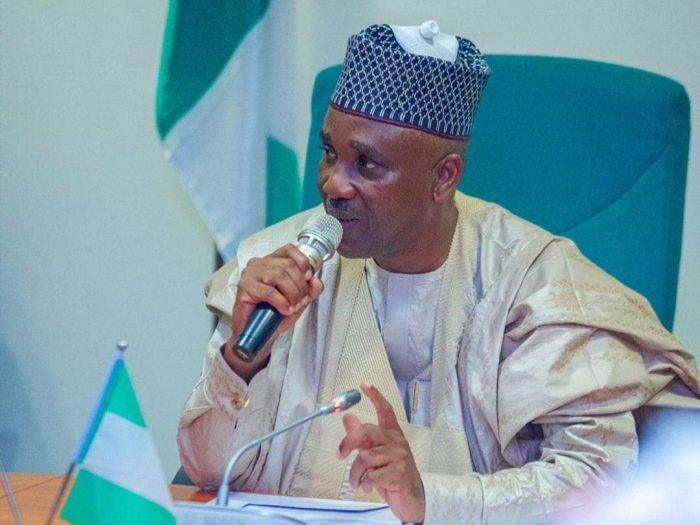The Speaker of the House of Representatives, Rt. Hon. Abbas Tajudeen, Ph.D, GCON, has emphasized the need for Nigeria to prioritize thinkers and builders over passive observers in driving the country’s development.
Speaking at the Convocation Lecture of the Federal University of Technology, Minna (FUT-Minna) on Friday, Speaker Abbas described the youth as invaluable assets capable of transforming the nation through technological innovation.
The lecture, titled “From Crisis to Prosperity: Harnessing Technology to Drive Nigeria’s Transformation,” focused on how strategic adoption of technology could help Nigeria overcome its challenges and achieve sustainable growth.
In his address, Speaker Abbas stressed that rapid technological advancements are reshaping economies and societies, and Nigeria must seize opportunities for innovation and economic development.
“As Africa’s most populous nation and largest economy, Nigeria faces several socioeconomic challenges. Addressing these issues is crucial for national progress. This lecture explores how technology can transform Nigeria from a state of crisis to one of prosperity,” he stated.
The Speaker also criticized the overemphasis on university degrees at the expense of technical and vocational education, arguing that this mindset has led to an erosion of essential industrial skills.
“In Nigeria, university degrees are often seen as superior to diplomas from technical institutions. However, many university graduates end up pursuing vocational skills such as hairdressing and catering, which could have been more effectively acquired through technical education,” he noted.
Drawing comparisons with countries like Germany and the UK, where technical education plays a key role in industrial development, Speaker Abbas urged Nigeria to strengthen its polytechnics and vocational training institutions to meet industry demands.
The Speaker expressed concern over the declining quality of graduates from Nigerian universities, attributing it to systemic issues such as a shortage of qualified lecturers, overcrowded classrooms, and poor remuneration for academic staff.
“Nigeria faces a significant shortage of qualified lecturers, with lecturer-to-student ratios far exceeding global standards. This overcrowding limits the ability of lecturers to provide quality instruction,” he stated.
He also condemned corruption in academia, including the commercialization of education, unethical grading practices, and sexual exploitation for grades, stressing that these issues undermine public trust in the educational system.
To address these challenges, Speaker Abbas called for increased funding for higher education, better remuneration for lecturers, stricter enforcement of ethical standards, and transparent evaluation systems.
Read also: House of Reps greenlights Ukodhiko’s bill to amend University Teaching Hospitals Act
The Speaker highlighted chronic underfunding of Nigerian universities as a major issue affecting research, infrastructure, and overall educational quality. He proposed that universities adopt global funding models that reduce dependence on government allocations.
“Nigerian universities must rise to the challenge by envisioning and developing a ‘Nigerian Innovation Corridor’—a framework that fosters collaboration between academia, industry, and government to drive technological transformation,” he said.
Speaker Abbas emphasized that Nigerian youth must embrace digital tools for personal development and entrepreneurship, urging them to take advantage of online learning platforms, coding boot camps, and tech communities to build their skills.
He commended President Bola Ahmed Tinubu’s administration for supporting young innovators through various initiatives, including funding, mentorship programs, and entrepreneurship platforms.
“By prioritizing youth engagement and increasing funding for technology and innovation, Nigeria is laying the foundation for a more inclusive and dynamic economy,” the Speaker stated.
The Speaker’s remarks reinforced the need for a shift in national priorities, urging policymakers, educators, and industry leaders to invest in innovation and skill development to secure Nigeria’s future.Nigeria needs thinkers, builders, not passive observers – Speaker Abbas
